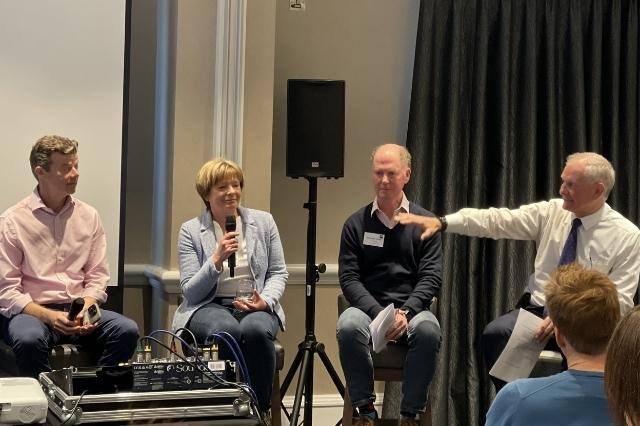
Understanding Generational Differences to Boost Business Performance
by The Alternative Board (UK)
At the 2019 Annual World TAB Conference in Denver, Colorado, some of us had the pleasure of hearing the keynote presentation from Alicia Rainwater of The Centre for Generational Kinetics and she made some really interesting points.
It’s probably worth starting with showing how they split the generations. There are different definitions from different sources but for the purposes of this article we will use the following definition:
Generation Z 1996 – Current date
Millennials (or Generation Y) 1977 – 1995
Generation X 1965 – 1976
Baby Boomers 1946 – 1964
How do the members of these different generations behave? The overview of each generation makes for some interesting reading, and could give you some insights into how your customer base might think or behave:
Generation Z
- They do not remember a time before the internet, smartphones or social media.
- Over the next five years they will become the fastest growing generation of employees and consumers.
- They might leapfrog Millennials at work due to their work ethic and expectations.
- This is the most diverse generation in history, even more diverse than Millennials.
- They will be fiscally more conservative than Millennials.
Millennials
- Fastest growing generation of employees and consumers.
- Driving every major workplace and marketplace trend.
- Often feel entitled, but the group most offended by Millennials acting entitled is other Millennials who do not feel entitled!
- They are experiencing delayed adulthood which impacts everything from marriage to buying a home to employee retention and job searches.
- They are not very tech savvy, but are tech dependent – which dramatically impacts communications, marketing and learning.
- They will have the greatest lifetime value of any consumer or client you can win today.
- They are most likely to refer friends and colleagues to a company or brand.
- They bring valuable new skills and a willingness to challenge the status quo as employees.
Generation X
- Often sceptical – their mantra may be “Trust, but verify”.
- Loyal to individuals
- Don’t like surprises at work
- Make great managers and leaders because they dive into the details.
Baby Boomers
- Define work ethic in hours per week.
- Don’t believe you’re working unless they can see you!
- Like policies, procedures and fax cover sheets.
These points are fascinating, particularly if you run a business, because the generation to which you belong will impact on how you want to communicate and behave but that may not be how your customers, clients or employees want to receive the communication!
So, when it comes to communicating with potential clients or customers, think about which generation they might come from and how they prefer to receive information, because there are differences and these can have a big impact on whether they engage with you when you’re trying to start working with them.
Similarly, if you want to retain employees, think about how you are communicating with them and whether they will be receiving the key messages you are trying to relay to them.
As you can see, understanding the generations you’re working with and communicating with can make a big difference to your business. If this is the case, surely it’s worth spending some time thinking about how you are doing this. It could make a big difference to the success of your business.
Related articles

Business Growth Networks: Building Connections in 2025
Discover how business growth networks in 2025 help UK leaders build valuable connections, find new opportunities, and accelerate sustainable growth.
.jpg)
Business growth strategies for SMEs
This is a comprehensive guide to growing your business. Learn about what strategies are most effective for growing your business this year.

Business Analysis Tools: 5 Proven Tools & Techniques
Learn how the right business analysis tools can transform decision-making, improve results, and help business owners achieve lasting growth.





